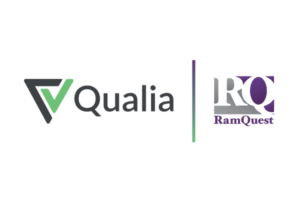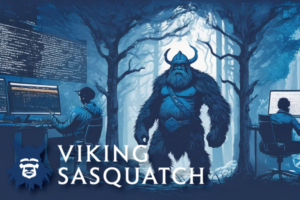2023 saw significant strides in various technologies for the title insurance sector, from the rapid emergence of generative AI to new specialized software tools being released from leading closing vendors to newer entrants alike. This momentum shows no signs of slowing in 2024.
While technological advancements offer efficiency and opportunity, they also create new avenues of cyberattacks. For title companies, staying ahead of emerging threats is paramount to protecting your business, your clients, and the integrity of real estate transactions.
The volume and sophistication of attacks is rapidly changing. The American Land Title Association reports that more than 90% of title companies experienced an increase in cybercrime attempts in recent years.
“Fraud attempts are increasing compared to a year ago, meaning title and settlement companies must be even more vigilant.”
– Diane Tomb, Chief Executive Officer, American Land Title Association (ALTA)
The increasing sophistication of cyberattacks causes heightened risks of data breaches, financial losses, and operational disruptions to title companies. It’s critical to take proactive measures to secure your operations. This article delves into the emerging cybersecurity threats facing the title insurance industry. We’ll start by discussing some of the emerging cybersecurity threats, and then share best practices for risk mitigation, along with ways to build a resilient cybersecurity posture.
Identifying New Cybersecurity Threats
The sensitive financial information that title companies carry makes them attractive targets for cybercrime. Their expertise lies in title searches and closings, but the growing complexity of data protection demands specialized cybersecurity knowledge as well.
Don’t wait for an attack to occur before you employ a more proactive approach. Start by familiarizing yourself with the most widespread, emerging cybersecurity threats in the industry:
Token Harvesting
Token harvesting is a widespread, emerging cybersecurity threat that exploits common identity verification models. Unlike traditional credential theft, attackers focus on hijacking active sessions by stealing the tokens that a website or application grants after successful logins. These tokens, often stored in browser cookies or local storage, can be intercepted through malware, cross-site scripting (XSS) attacks, or even browser extensions.
For title companies, the implications of token harvesting are particularly concerning. An attacker could compromise a token used by an escrow officer handling sensitive wire transfer details by impersonating the officer and modifying instructions. This could lead to diverted funds and a disrupted transaction process.
A unique aspect of token harvesting is its ability to bypass traditional MFA systems. Since the attacker leverages a legitimate user’s token, most systems won’t detect the unauthorized access. While employee training is vital, it often proves insufficient in fully preventing sophisticated token harvesting attacks due to their highly technical nature.
MFA Fatigue Attacks
MFA fatigue attacks, also known as MFA bombing or MFA spamming, are evolving social engineering tactics that subvert multi-factor authentication safeguards. Attackers often possess valid user credentials obtained through phishing or data breaches. They exploit the time-sensitive closing process by overwhelming users with multiple MFA requests to grant access inadvertently.
This tactic poses a direct risk to title companies, especially those relying on outdated “accept/deny” MFA systems. Even diligent title examiners, operating under the pressure of deadlines, can fall victim to a well-timed barrage of MFA prompts. This single point of failure could cause a chain of attacks.
Voice Phishing (Vishing)
Voice phishing, or vishing, is not a new tactic. However, the level of sophistication used by cybercriminals has significantly increased. AI-powered voice synthesizers enable them to perform targeted attacks that sound nearly indistinguishable from legitimate sources. These are often sourced from short audio samples from a YouTube video, podcast, or even voicemail message to impersonate someone convincingly.
Furthermore, these strategies exploit common societal habits. A McAfee report shows that 53% of all adults share their voice at least once a week through social media, providing readily available data for potential voice cloning. AI leverages this data by using sophisticated algorithms to gather, analyze, and synthesize voice samples from various sources. This process enables the creation of highly realistic voice replicas that allow cybercriminals to impersonate individuals convincingly.
For title companies, the implications are even more severe due to the sensitive data they manage.
Traditionally, if an attacker seeks to gain access to a title company’s Microsoft 365 environment by impersonating the Director of IT, it would traditionally require extensive research to craft a convincing attack.
However, AI dramatically accelerates the process. This can pull data from many different sources within moments, creating a comprehensive profile of the target. Additionally, advanced voice synthesis can replicate voice patterns with startling accuracy.
Cybersecurity Techniques and Defenses
Now that we’ve explored some of the emerging attacks targeting title companies, let’s turn our attention toward ways to mitigate them. Here are some of the most critical – and actionable – techniques your firm can adopt right away.
Implement Cloud Response Security Service Tools
The proactive implementation of cloud response security service measures can mitigate most emerging cybersecurity threats. Going back to token harvesting—legacy systems can’t detect unauthorized access under the same tokens. However, more advanced security tools will recognize unusual login patterns, e.g., location, surfing habits, and logged-in devices, within IT environments.
Companies that lack advanced cloud protection could benefit from adaptive Cloud Response technology. This secures operations by analyzing activity patterns within cloud environments and allowing early detection of subtle anomalies that often signal compromised accounts or data exfiltration attempts.
Check Your Microsoft Secure Score
Title companies should review their Microsoft Secure Score on a regular basis to ensure their cybersecurity posture aligns with evolving threats. The Secure Score provides an objective, data-driven assessment of security measures. Its metrics are based on industry best practices and technical configuration analyses, minimizing the influence of subjective opinions.
Additionally, they should consider integrating a comprehensive security solution like Microsoft XDR to further enhance defenses beyond Secure Score insights. XDR’s threat detection and analysis span the entire IT ecosystem, not just Microsoft 365. Centralized visibility across endpoints, access identities, email, and cloud applications enables faster and more effective threat response.
Provide Company-Regulated AI Tools
Unregulated, widespread adoption of AI tools presents a unique challenge for title companies. People within the organization are already using AI solutions without formal approval or oversight. This creates potential risks for data leakage, particularly when sensitive client information is processed through unsanctioned personal accounts.
AI is a crucial part of modern workflows as it boosts efficiency and automates routine tasks. However, due to the risks associated with unsecured AI usage, it’s vital to manage activities using company-approved AI tools. Training the team on responsible AI use is essential. Subsequently, rigid policies can be enforced to prohibit the use of external, non-approved platforms for analyzing confidential data.
Adopt Zero Trust Security Protocols
Zero trust security, with its core principle of “never trust, always verify,” is a critical component of cybersecurity for title insurance companies – especially in today’s era of hybrid and remote work. A recent survey shows that 86% of organizations are actively implementing zero trust, and for good reason. The idea is that the security system must work with the assumption that everyone within and outside the organization is a potential bad actor.
“Zero Trust involves verifying every user and device trying to access resources on a private network, regardless of whether they are inside or outside the network’s perimeter.”
– Kevin Nincehelser, Chief Operating Officer, Premier One
Implementation involves a multi-layered approach that takes time. However, title companies can jumpstart their transition by focusing on these areas:
- Identity Verification: Implement advanced MFA with features like limited-time approval windows and user behavior analysis to reduce the risk of MFA fatigue and enhance protection against unauthorized access.
- Automation: Security tools like Microsoft Intune can automate device provisioning to ensure compliance with security policies and simplify access management.
- Comprehensive Approach: Adopt a comprehensive Zero Trust approach that includes rigorous identity verification, device integrity checks, encrypted data communications, and continuous monitoring for anomalies, to mitigate ransomware threats and ensure thorough oversight of critical data and systems.
Cyber Threats Evolve—Is Your Client Data Secure?
As title insurance companies handle vast amounts of sensitive information, they become prime targets for cybersecurity threats that can compromise this data, disrupt operations, and damage reputations.
To stay ahead of these threats, it is imperative for title companies to implement robust cybersecurity measures. From Microsoft Secure Score to Zero Trust Security, there are a handful of steps that all title companies should take to combat the latest threats.If the task feels daunting, that’s where Premier One can help. With 30+ years of experience as the leading IT provider for title insurance companies, we can address your unique cybersecurity needs. Book a consultation with the team to assess your current strategy and identify areas for enhancement.


